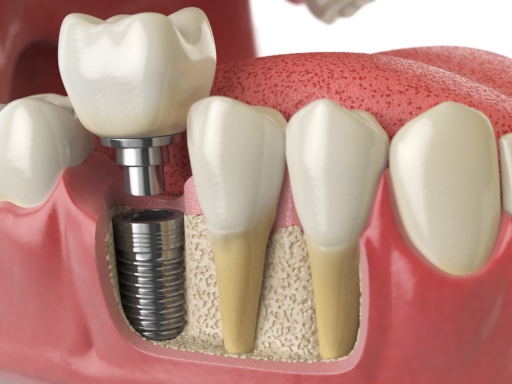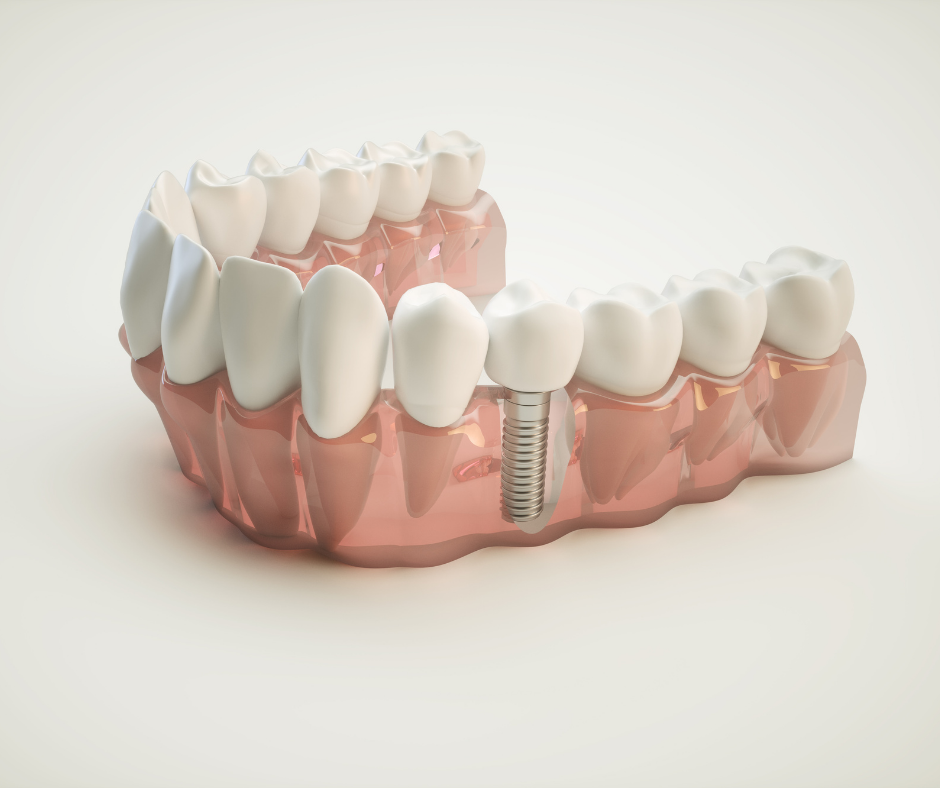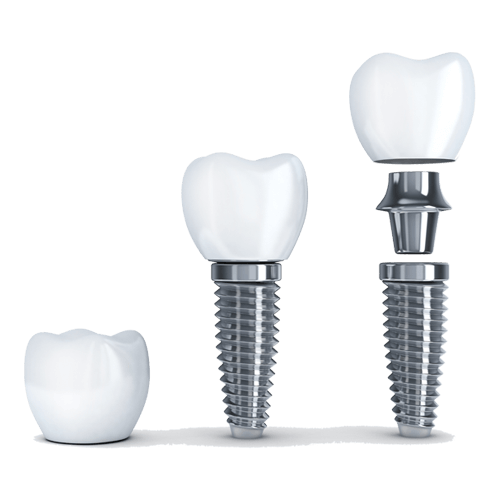Teeth require extraction usually for one of two reasons. Either due to extensive decay or due to bone loss resulting from periodontal disease. Considering nearly half of our adult population struggles with periodontal disease, it is unsurprising that nearly 178 million Americans are missing at least one tooth.

Combine this with the fact that about 40 million have no natural teeth at all and that is a significant amount of tooth loss. It used to be that if you were missing teeth your only option for replacement was a full or partial denture or a bridge. That is no longer the case. Dental implants are usually the best option for replacing missing teeth.
They can be used to replace one or multiple teeth. Sometimes they are used to anchor a denture or as a part of a bridge unit. We’re sharing our top 5 reasons dental implants are your best option!
Improved Quality of Life -DENTURE LOCKED INTO DENTAL IMPLANTS
Dental implants are the best alternative dentistry has to offer when a patient is missing a tooth. They are not susceptible to decay, one can bite and chew on a dental implant as they would their natural tooth, and implants can provide excellent aesthetic results. Osseointegration occurs when a dental implant is placed.
This means the bone will actually grow into the threads of the titanium implant screw, which creates a very strong and functional tooth. With a routine implant placement the process from start to finish is about 6 months. Sometimes dentures are the simplest solution when dealing with replacing multiple teeth, but implants can also be placed in order to have something to lock a denture in place.
The difficulty with dentures is that they cannot fit for a sustained amount of time due to the continuing change in the oral anatomy. When all teeth are missing this can be drastic as the years go by. The “All-on-4” or “lock-in dentures” can be a great solution by utilizing dental implants to secure the denture permanently or even still be able to remove it.
Dental Implants Built to Last
Most restorations and as stated above, even dentures aren’t made to last forever. Dentures will need to be adjusted or replaced as your bone dwindles. A bridge may last 5-10 years, but an implant can last a lifetime.
If properly placed the success of implants is near 98%, that’s about as close as you can get to a guarantee in the medical field. Implants have been around much longer than most people realize, and the 30 year survival rate is over 90%.
Preserve Remaining Teeth - Dental Implants
As we discussed earlier placing an implant maintains bone integrity and density, having a low impact on the surrounding teeth. This can not be said for bridges or partial dentures.
A bridge uses 2 teeth to fill a missing space. If anything happens to either of the natural teeth, the entire bridge has to be taken out.
A partial denture uses remaining teeth for support, which can cause gingival issues and places undue force on the natural teeth. An implant actually supports itself without adding stress to surrounding teeth.

Dental Implants Give You Natural Looks
When done properly, an implant is not distinguishable from other teeth. It may look similar to a crown, but most people won’t even realize that. It will look natural to others and feel natural to you. Once a crown is placed and your implant is complete, you won’t even think about it being different from your other teeth. It will feel as comfortable as having your own tooth back.
Are Dental Implants Resistant to Decay?
Because implants are titanium they are resistant to decay. This means once an implant is placed, if cared for properly, you never have to worry about it needing future treatment. Implants can still suffer from peri-implantitis (the implant version of periodontal disease), so it is important to maintain optimal home care habits.
If using regular floss, they need to be treated just a bit differently due to their contour, but this will be discussed with your dentist after the implant is complete. If you’re using a water flosser this is not an issue.
Without proper home care, inflammation of the soft tissues supporting the implant can occur – this is called mucositis, and can be reversible. However, if the inflammation travels to the hard tissues and bone supporting the implant, peri-implantitis has occurred; this can result in failure and surgical removal of the implant.
With proper candidate at placement selection, mirrored homecare, dental implants can last a lifetime. At Laurel Dental Clinic, we strive for excellence in patient care and want to make sure each patient is an appropriate candidate for a dental implant.
Dental Implants Risk Factors Checklist
- Active Moderate to Advanced Periodontitis
- Bisphosphate use or history
- Head and neck radiation
- Diabetes
- Controlled
- Uncontrolled
- Poor plaque control
- Infrequent dental hygiene re-care
- Tobaccos Use
- Bruxism
- Controlled
- Uncontrolled
- No Risk Factors
- Comprehensive Exam complete

Laurel Dental Clinic we also utilize our Dental Cone Beam
At Laurel Dental Clinic we also utilize our Dental Cone Beam in order to evaluate the density of the bone and to measure the distance from major anatomical obstacles. This has been an incredible tool that Dr. Noble and Dr. Roush implement in every implant procedure to ensure the ideal placement and size for your particular need.
This asset along with their experience should help you rest assure that care and quality are of the utmost importance at Laurel Dental Clinic throughout the entire process of your implant placement. Please know that before placing implants it is of the utmost importance to ensure that the oral environment is healthy and ready for this particular restoration option!
If this is something that interests you or you would like to know more about please call our office at (360)452-9744 to set up an implant consult.
Resources/References:
American College of Prosthodontists -https://www.prosthodontics.org/assets/1/7/ACP_Talking_points_for_Missing_Teeth_1-12-15.pdf
Ritter Implants – https://www.ritterimplants.com/blog/top-10-reasons-choose-dental-implants
American Academy of Implant Dentistry – https://www.aaid-implant.org/dental-implants/who-can-benefit/
UIC College of Dentistry – https://dentistry.uic.edu/patients/dental-implants-benefits

